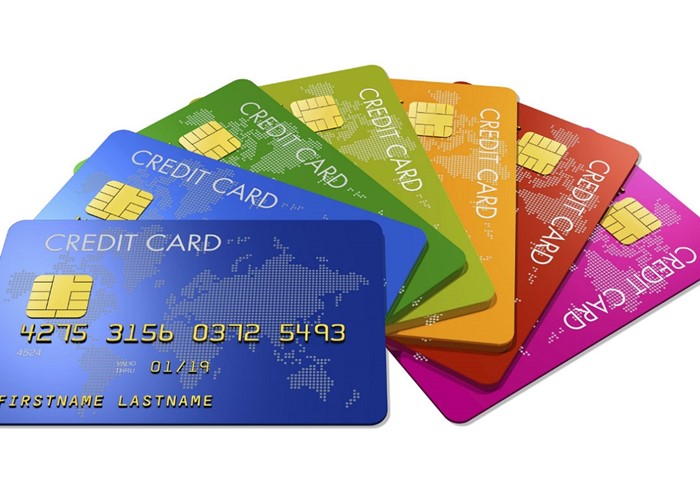Eight tips to clear your credit card debts

We go back to basics with solid tips to clear your card debts quicker!
As I wrote here, the less debt interest you pay, the more stuff you'll be able to buy in your lifetime! To that end, I'm going back to the basic, yet essential, ways to reduce and pay off the 'devil's debt' - credit cards.
1. Fix a budget for reducing your debt
If you meet just the minimum repayments, it can take more than 30 years to clear a £5,000 debt, paying more than £5,000 in interest at the same time! Of course, you'll probably get more money in before then to enable you to clear the debt sooner. But before that happens, you'll pay vast amounts of interest on a debt that barely budges.
So work out how much money you can afford to pay towards your debts each month and set up direct debits to pay that fixed amount. £200 per month to clear a £5,000 debt will take three years, not 30!
2. Pay off the debt with the highest interest first
You don't have to spread repayments evenly. From your debt repayment budget, pay the minimum on each credit card except the one with the highest interest rate. Throw the remainder of your budget at that card. When you've paid that off, you then have even more money to throw at your second-highest interest rate, and so on.
By tackling the higher rates in this way, you'll massively reduce the amount of interest you pay and the time it takes to clear all your debts. This is a technique known as snowballing.
Related how-to guide

Pay off your credit card debts
How to destroy your credit card debt quickly and effectively.
See the guide3. Reduce your interest rates
You get the same result by reducing your interest rates. Transfer your existing card debt with the highest interest rate onto a 0% balance transfer card if you can. You'll be charged a small fee for this, but you won't have to pay interest on the transferred debt for a set period. This will again mean you pay less interest, clear your debts much faster, and can buy more stuff in your lifetime.
Right now, the most competitive 0% balance transfer card is the Barclaycard Platinum with 20 Month BT Visa which offers a whopping 20 months interest-free on balance transfers. It comes with a 3.2% fee.
4. Cancel PPI
The insurance you buy with your credit cards to protect your payments in the event of accident, sickness or unemployment is vastly over-priced, adding maybe £400 a year to a £5,000 debt.
Cancel your payment protection insurance (PPI), so that you can pay off your debts faster. If you really feel you need the insurance, search the internet for a stand-alone provider, which will be about 80% cheaper and will likely have better terms - just ensure you're aware how PPI policies can be riddled with catches.
Many people have been mis-sold PPI. Read whether you're eligible to get your premiums back in An easy way to reclaim your rip-off premiums.
5. Clear your debts before saving
The interest rates on savings accounts are much lower than credit-card interest rates - other than very special card deals. This means that you'll be debt-free a lot more quickly and cheaply if you clear your card debts before you save.
There are, however, three arguments for having a small pot of savings before you've cleared your cards:
- It helps you build a savings habit.
- If your lender is constantly reducing your credit limit as your debt goes down (a rare occurrence) then you will have no quick access to cash in an emergency. You'll therefore need some savings.
- It makes you physically sick to have to keep borrowing to pay for small emergencies and big-ticket items.
6. Limit your treats
If you spend a lot on clothes, alcohol or whatever, start budgeting a sensible amount. Once you've spent your budget for the week or month, the rule is that that is it till next time. Spend your money wisely and build up your willpower!
7. Don't miss payments
Missing payments can be unbelievably expensive. You'll get a penalty fine and interest, you'll lose your introductory cheap interest rates, and you'll get a bad mark on your record meaning borrowing will be more expensive for you in future. If you're on a tight budget it's easy for fines and interest to snowball until it gets a little bit scary, and a big bit expensive. Set up direct debits.
Related how-to guide

Set a budget and stick to it
Learn how to successfully squeeze your budget.
See the guideYou should certainly not miss payments because you've been buying luxuries!
8. Budgeting
I've read thousands of messages from debtors over the years, so I know that the only way that you're going to reduce your debts is when you accept you need a realistic weekly, monthly and annual budget. It takes time to develop one that works, and it's ever-changing like your income and your needs, but it's essential to keep at it. Once you've got it right, your debts will come down quickly.
Read How to budget in five simple steps for more advice.
Finally, if your debts are out of control, seek free advice from places such as the Consumer Credit Counselling Service, Citizens Advice and The National Debtline. Find out more in Where to get free debt services.
This is a classic article that has been updated for 2011.
More: Tesco double Clubcard points are back | Five frequently asked money questions
Comments
Be the first to comment
Do you want to comment on this article? You need to be signed in for this feature